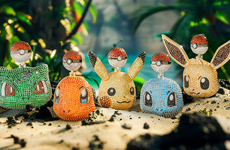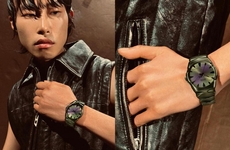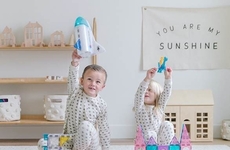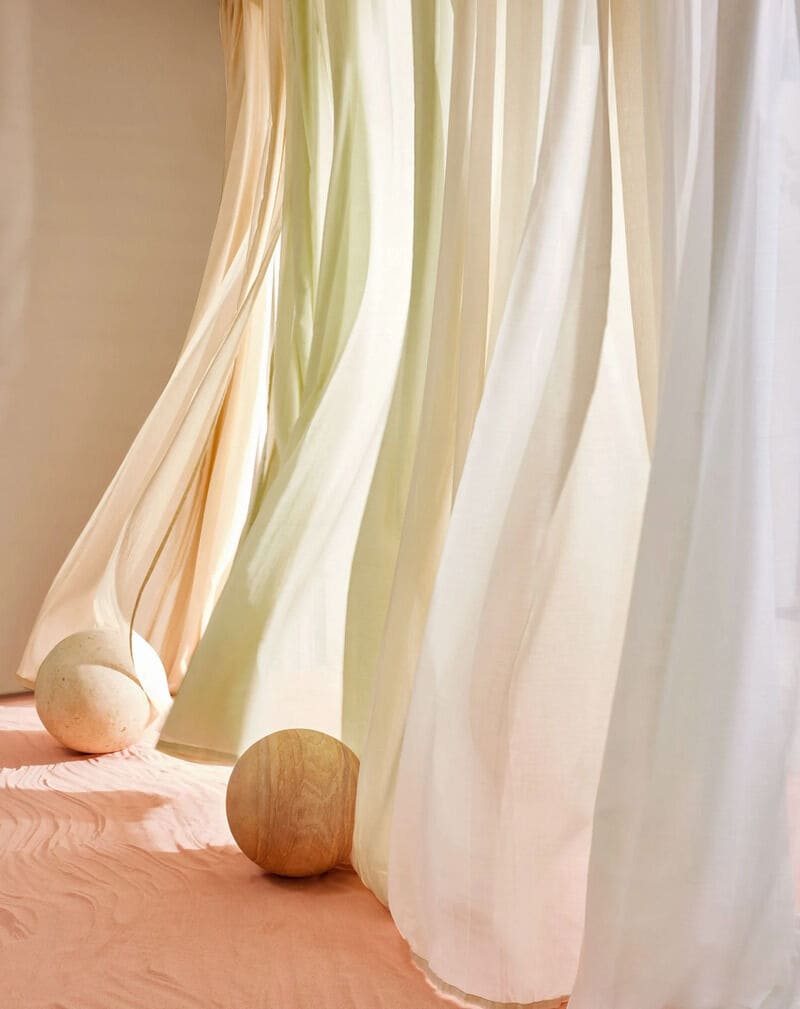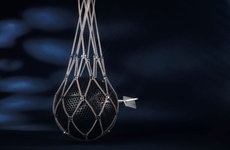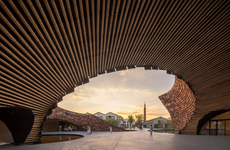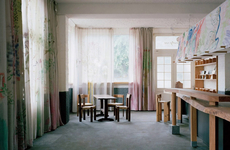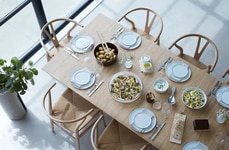
Kirkby Design Creates the Aloe Fabric Using the Plant
Amy Duong — November 21, 2024 — Art & Design
References: kirkbydesign & dezeen
British textile imprint Kirkby Design has created the Aloe fabric, which is known to be the first interior fabric crafted from aloe vera, the plant that grows without needing additional watering or chemicals. The fabric is a sheet finish and entirely washable. It has a wide-format and draped form crafted from 60% aloe vera and 40% organic cotton.
Director of the studio, Jordan Mould shares with Dezeen, stating "Aloe Vera's natural structure allows the yarn to create fabrics that have a lightweight, airy quality. Aloe fabric allows light to filter through gently, creating soft, diffused lighting within a room. This gives spaces an ethereal, contemporary glow without sacrificing privacy. It's ideal for creating sheer or semi-sheer fabrics that maintain a balance between openness and privacy."
Image Credit: Kirkby Design
Director of the studio, Jordan Mould shares with Dezeen, stating "Aloe Vera's natural structure allows the yarn to create fabrics that have a lightweight, airy quality. Aloe fabric allows light to filter through gently, creating soft, diffused lighting within a room. This gives spaces an ethereal, contemporary glow without sacrificing privacy. It's ideal for creating sheer or semi-sheer fabrics that maintain a balance between openness and privacy."
Image Credit: Kirkby Design
Trend Themes
1. Eco-friendly Textiles - Kirkby Design's Aloe fabric demonstrates the growing trend of utilizing sustainable plant-based resources in place of synthetic materials.
2. Washable Home Decor - The fully washable Aloe fabric caters to a rising demand for low-maintenance yet stylish home interior solutions.
3. Light-diffusing Fabrics - Aloe fabric's ability to softly filter light while maintaining privacy reflects an increasing preference for versatile light-diffusing home textiles.
Industry Implications
1. Interior Design - The introduction of Aloe fabric offers interior designers innovative materials that combine sustainability with aesthetic flexibility.
2. Textile Manufacturing - Textile manufacturers are witnessing a shift towards eco-friendly materials as Aloe fabric sets a precedent for sustainable fabric production.
3. Eco-conscious Home Goods - The Aloe fabric taps into the eco-conscious home goods market by providing environmentally friendly and functional decor options.
4.3
Score
Popularity
Activity
Freshness


